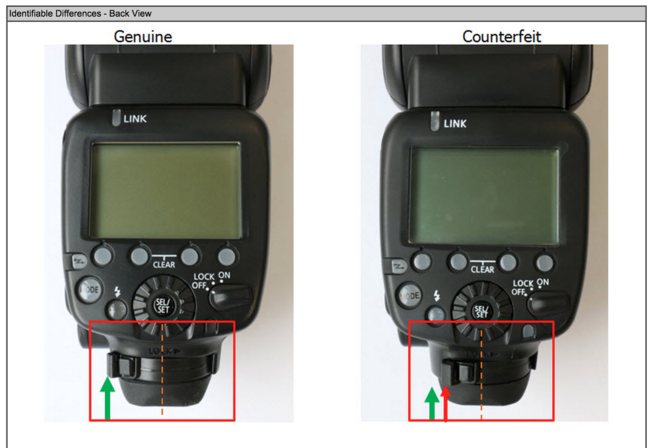
Haydn Morgan: Counterfeit products – a global threat
The number of counterfeit products being sold is continuously rising, recently confirmed in reports compiled by by Police Intellectual Property Crime Unit (PIPCU). The City of London Police has reported that more than 5,500 websites sell fake branded goods and UK police estimates counterfeit products that have been seized to date are worth around £3.5m.
Lear MoreSteps up as cigarettes up 30 sen
The Customs Department continues to enhance its enforcement initiative to curb smuggling activities.
This includes contraband cigarettes following an increase of 30 sen on the price of cigarettes by tobacco companies.
Its Director-General Datuk Seri Khazali Ahmad said there is no direct correlation between the rise of cigarette price with smuggling activities in the country.
http://www.dailyexpress.com.my/news.cfm?NewsID=101218
Lear MoreSalesman arrested for counterfeit goods
The Abu Dhabi Police have arrested a salesman for dealing in women’s bags counterfeiting high-end brands. The suspect was operating this commercial fraud from his apartment and was caught after a raid was conducted following a tip off.
http://gulfnews.com/news/uae/crime/salesman-arrested-for-counterfeit-goods-1.1545131
Lear MoreIllicit Trade in Tobacco Products: Stubbing Out an Unending Scourge
Dominated globally by organised crime, the illicit tobacco trade could be said to be a frightening tripod that damages legitimate business, undermines public health and facilitates the supply of tobacco to young people. The criminality involved, including the use of the proceeds to fund other crimes, has a devastating effect on individuals and communities worldwide.
Lear MoreCharges filed in fake tech product scheme
Four people were charged with importing and distributing fake Apple and Sony electronic gear, following a joint investigation by the Department of Homeland Security and the Bergen County Prosecutor’s Office, the United States attorney for New Jersey said Wednesday.
Lear More
4 Charged with Counterfeiting Apple, Sony Products
Four people were charged in Newark, New Jersey, Wednesday with allegedly smuggling 40,000 counterfeit electronic devices and accessories into the United States from China with an estimated value of $15 million. Andreina Becerra, 30, a Venezuelan national, and Roberto Volpe, 33, an Italian national, both of Miami; Jianhua Li, 40, a Chinese national and resident of Guangzhou, China; and Rosario La Marca, 52, an Italian national and resident of Italy, were accused in an eight-count indictment of importing and trafficking fake iPhones, iPads and iPods bearing counterfeit Apple trademarks and fake camcorders bearing counterfeit Sony trademarks, as well as smuggling, structuring and international money laundering.
http://sanangelolive.com/news/national/2015-07-02/4-charged-counterfeiting-apple-sony-products
Lear MoreBanning cigarettes would only encourage smuggling
As a father of a teenage daughter, I can relate to the concerns raised in Ms Adeline Goh Yee Hua’s letter, “Smoking is bad for health: Why is it not banned?” (June 27). The idea of watching young children puffing away their lives horrifies me.
http://www.todayonline.com/voices/banning-cigarettes-would-only-encourage-smuggling
Lear More
Toxic alert over fake make-up
Faced with a growing global influx of fake make-up, the world’s most counterfeited cosmetics brand is warning customers to beware of buying potentially dangerous products.
Tests have shown traces of urine, arsenic and dangerous heavy metals in eye and lip products made in insanitary conditions, mostly in China.
http://www.nzherald.co.nz/lifestyle/news/article.cfm?c_id=6&objectid=11473625
Lear More
French fury over ‘fake’ cheese in TV expose
The widespread use of “fake cheese” has outraged France after a TV documentary secretly filmed artificial substitutes being produced by the country’s food manufacturers.
Restaurateurs and food critics in the nation celebrated for its fine cheeses called for new food labelling rules to be brought in after France 2 television revealed the proliferation of vegetable fat-based substitutes.
Lear More

Canon Warns of Fake 600EX-RT Flashes For Sale Online
If you’re planning on buying a Canon 600EX-RT flash online in the near future, you’ll probably want to do it from an authorized Canon reseller because a supply of fake speed lights has apparently popped up on the web. Nikon recently made a similar announcement about some of their gear, which suggests there’s no slowing in the counterfeit camera gear game.
http://www.popphoto.com/canon-warns-fake-600ex-rt-flashes-sale-online
Lear More


